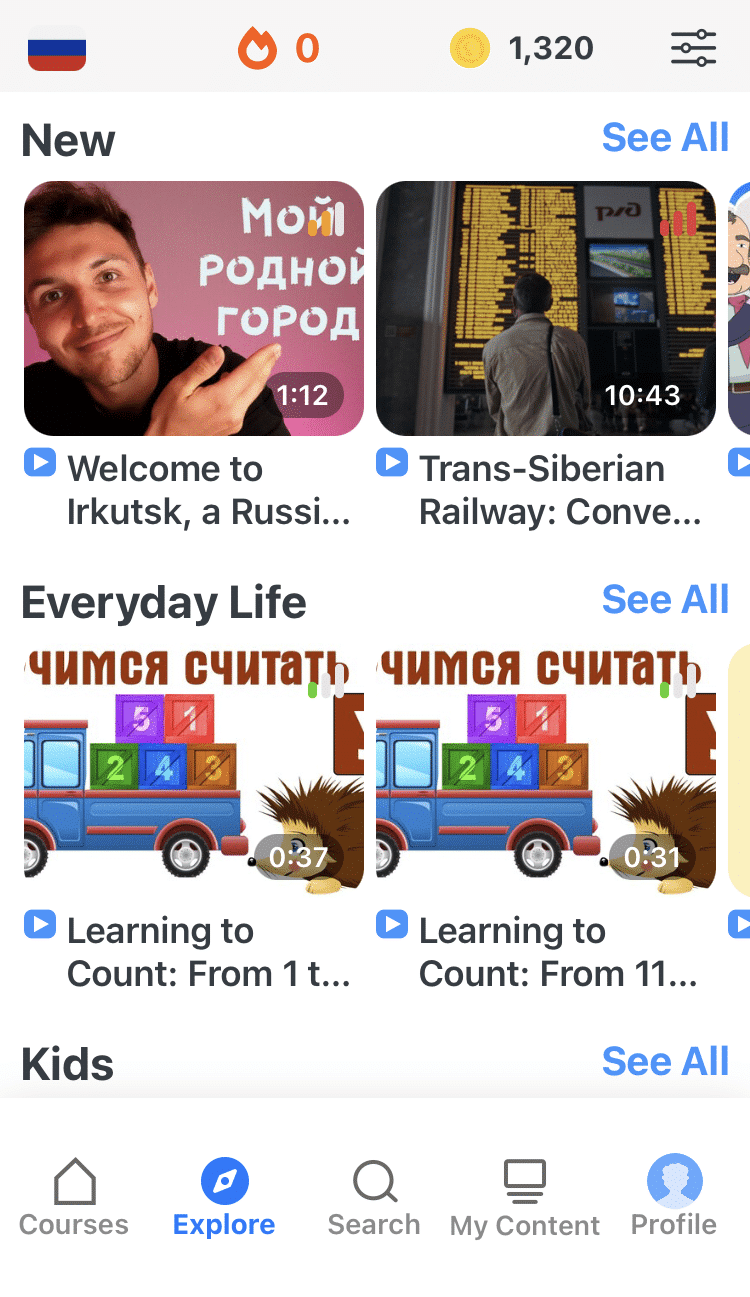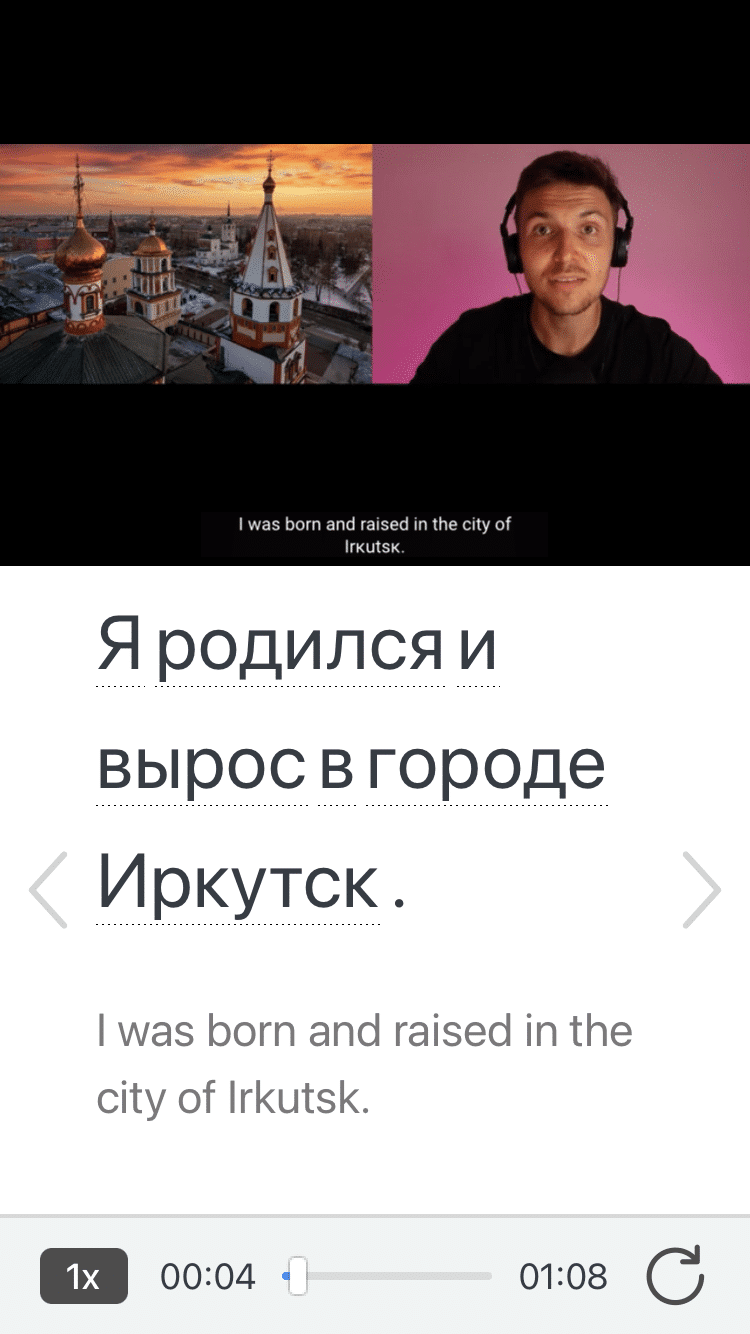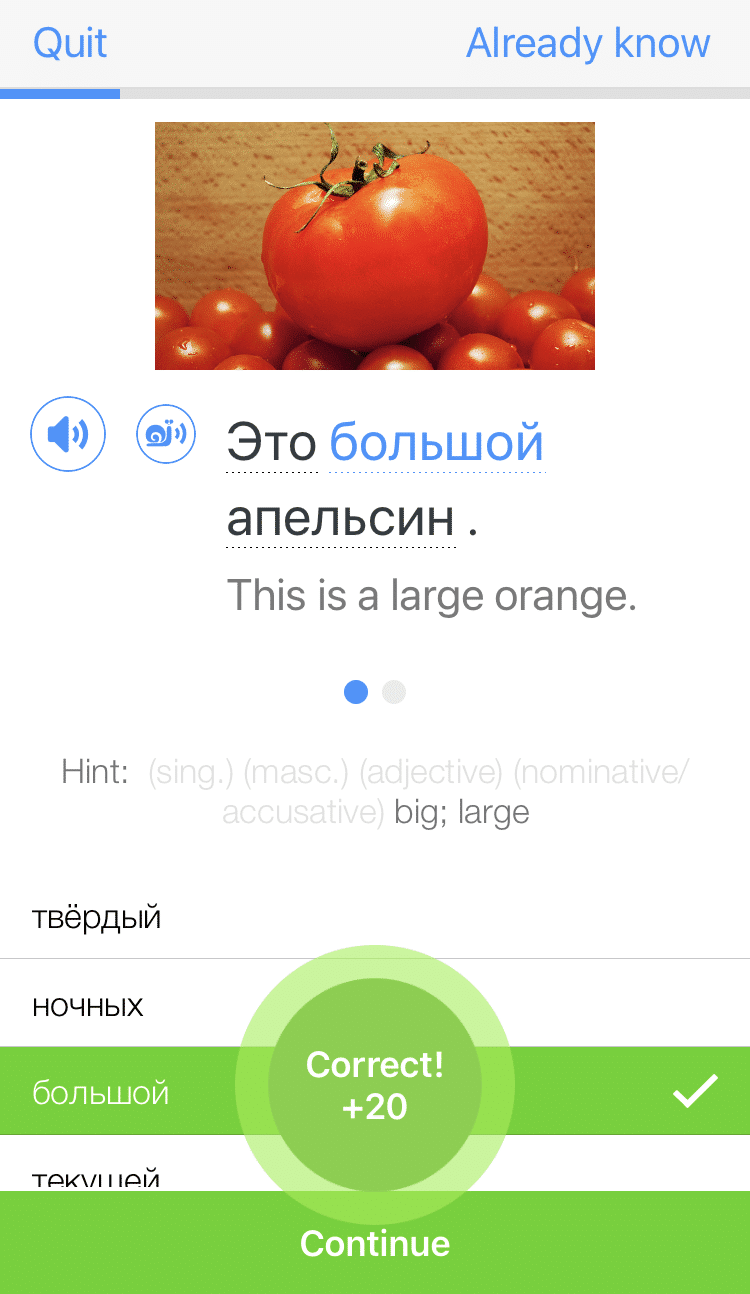
14 of the Longest Words in Russian
Russian isn’t known for its short and snappy words. While in other languages, the longest words are full of medical and technical jargon, in Russian you’ll find some words that you may actually hear on a day-to-day basis.
Read on as I share some of the longest words in the Russian language, along with some lengthy prefixes.
Contents
- 1. метилпропенилендигидроксициннаменилакрилический
- 2. рентгеноэлектрокардиографический
- 3. Дихлордифенилтрихлорметилметан
- 4. Частнопредпринимательский
- 5. переосвидетельствоваться
- 6. интернационализироваться
- 7. высокопревосходительство
- 8. человеконенавистничество
- 9. делопроизводительница
- 10. одиннадцатиклассница
- Longest Russian Prefixes
- And One More Thing...
Download: This blog post is available as a convenient and portable PDF that you can take anywhere. Click here to get a copy. (Download)
1. метилпропенилендигидроксициннаменилакрилический
Pronunciation: Metilpropenilendigidroksitsinnamenilakrilicheskiy
Number of letters: 47
Translation: This word is used exclusively in the phrase Метилпропенилендигидроксициннаменилакрилическая кислота and it’s the longest scientific word in the Russian language—at least according to the 2003 edition of the Grammar Dictionary of the Russian Language by A. A. Zaliznyak.
It means “Methylpropenylenedihydroxycinnamemenylacrylic acid” and is a term you’re unlikely to encounter unless you’re a scientist.
2. рентгеноэлектрокардиографический
Pronunciation: rentgenoelektrokardiograficheskiy
Number of letters: 32
Translation: This massive word means “X-ray electrocardiographic” in English. As you might guess, it’s a medical term for any procedure, device or technique that combines X-ray imaging with electrocardiography to record the electrical activity of the heart.
According to the Guinness Book of Records of 1993, this is the longest word in the Russian language. However, this entry is pretty contested, and at the very least isn’t a word you’d use in everyday life.
3. Дихлордифенилтрихлорметилметан
Pronunciation: Dikhlordifeniltrikhlormetilmetan
Number of letters: 30
Translation: This is the Russian name for an extremely widely-used insecticide that you might know, too: Dichlorodiphenyltrichloroethane, more commonly known as DDT. Although DDT is now severely restricted in many countries due to its adverse environmental and health effects.
Perhaps more notably, it gave its (abbreviated) name to one of the most influential Russian musical acts of all time. Well worth a mention IMO.
4. Частнопредпринимательский
Pronunciation: chastnopredprinimatel’skiy
Number of letters: 25
Translation: Many of the longest words in Russian are compound words. This word is a great example of that! It means “related to sole proprietorship” and is made up of the words частно (chastno), meaning “private” and предпринимательский (predprinimatel’skiy), which means “entrepreneurial.”
This is an outdated legal term for a sole proprietor. It’s now “индивидуальный предприниматель” in Russian law, but the old word still appears in some countries with significant Russian-speaking populations, such as Ukraine and Israel.
5. переосвидетельствоваться
Pronunciation: pereosvidetel’stvo-vat’sya
Number of letters: 24
Translation: This word refers to the need to undergo re-certification or to be assessed another time. You might hear it used if you need to retake your drivers license or get recertified in certain medical professions.
6. интернационализироваться
Pronunciation: internatsionaliziro-vat’sya
Number of letters: 24
Translation: (to become internationalized)
This is a reflexive form of the verb интернационализировать (internatsionalizirovat’). It means “to become internationalized,” and is generally used to refer to organizations that expand into international markets.
7. высокопревосходительство
Pronunciation: vysokoprevoskhoditel’stvo
Number of letters: 24
Translation: When превосходительство (prevoskhoditel’stvo), or mere “excellence” isn’t enough for you, you can use this word, which takes it to the extreme and means “supreme excellence” or “extreme superiority.”
This is an uncommon word. You used to be able to catch it in formal speeches or in discussions of diplomatic protocol, but now it rarely appears there, either. Currently, this word is reserved for certain civil and military officers in the Russian Empire, marking it as a historical term.
8. человеконенавистничество
Pronunciation: chelovekone-navistnichestvo
Number of letters: 24
Translation: You might know the words that make up this compound word: человек (chelovek) means “human” and ненавистничество (nenavistnichestvo) is hatred.
You can imagine what you get when you stick them together into one word: “human hatred” or some good old-fashioned Scrooge-style misanthropy. Hopefully this isn’t a word you’ll hear in everyday conversation, either!
9. делопроизводительница
Pronunciation: deloproizvoditel’nitsa
Number of letters: 21
Translation: Unlike some of the other, more obscure words on this list, this one’s a common noun that’s common in speech. It literally translates to “document clerk” and there isn’t an exact Russian meaning for it. It’s somewhat like a record keeper, office clerk or secretary (though none of those are exact translations).
10. одиннадцатиклассница
Pronunciation: odinnadtsatiklassnitsa
Number of letters: 20
Translation: This is a pretty specific term, referring to an eleventh-grade female student.
Longest Russian Prefixes
Part of the reason why Russian has such long words is because the language has long prefixes and suffixes. Those are the strings of letters that you tack onto the beginning (prefix) and end (suffix) of a word to change its meaning. For example, in the word “prefix,” the “pre-” is a prefix that means “before.”
- противо- (protivo-) — against or opposite (7 letters)
- Example: противоположный (protivopolozhnyy) — opposite
- четверо- (chetvero-) — four or group of four (7 letters)
- Example: четвероугольник (chetverougol’nik) — quadrilateral
- электро- (elektro-) — relating to electricity or electrical (7 letters)
- Example: электропроводка (elektroprovodka) — electrical wiring
- внутри- (vnutri-) — inside (6 letters)
- Example: внутривенный (vnutrenniy) — intravenous
While there’s a small amount of longer suffixes in Russian, generally they’re pretty short (unless you combine them into compounds, but we won’t get into that here!). Here’s a list of Russian suffixes if you’re curious.
You can also look out for more long Russian words in Russian-language media, like the kind you’d find on FluentU.
FluentU takes authentic videos—like music videos, movie trailers, news and inspiring talks—and turns them into personalized language learning lessons. You can try FluentU for free for 2 weeks. Check out the website or download the iOS app or Android app. P.S. Click here to take advantage of our current sale! (Expires at the end of this month.)
Keep an ear out when you’re listening to songs, watching movies or engaging in any other type of authentic learning.
Whether you use these words in conversations or just to practice your pronunciation, have fun with these impressively long Russian words.
If you love learning Russian and want to immerse yourself with authentic materials from Russia, then I should also tell you more about FluentU.
FluentU naturally and gradually eases you into learning the Russian language and culture. You'll learn real Russian as it's spoken by real Russian people!
FluentU has a very broad range of contemporary videos. Just a quick look will give you an idea of the variety of Russian-language content available on FluentU:
FluentU makes these native Russian videos approachable through interactive transcripts. Tap on any word to look it up instantly.
Access a complete interactive transcript of every video under the Dialogue tab. Easily review words and phrases with audio under Vocab.
All definitions have multiple examples, and they're written for Russian learners like you. Tap to add words you'd like to review to a vocab list.
And FluentU has a learn mode which turns every video into a language learning lesson. You can always swipe left or right to see more examples.
The best part? FluentU keeps track of your vocabulary, and gives you extra practice with difficult words. It'll even remind you when it’s time to review what you’ve learned. You'll have a 100% personalized experience.
Start using the FluentU website on your computer or tablet or, better yet, download the FluentU app from the iTunes or Google Play store. Click here to take advantage of our current sale! (Expires at the end of this month.)
And One More Thing...







